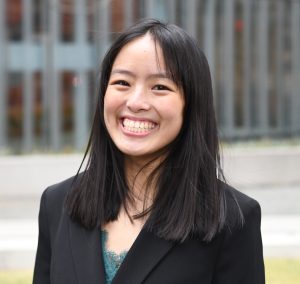 Olivia Ong, COL ’24, Wellesley, MA
Olivia Ong, COL ’24, Wellesley, MA
This summer, I had the opportunity to work at the Titchenell Lab in the Institute for Diabetes, Obesity, and Metabolism at Penn Medicine. The Titchenell Lab focuses on understanding the signaling mechanisms by which insulin regulates systemic glucose and lipid metabolism. I worked closely with PhD student Anna Garcia-Whitlock on her project to understand the mechanisms of stress-induced hyperglycemia and develop potential drug treatments. I am incredibly thankful for all that I gained from this experience. The Titchenell Lab has given me experience in several new lab techniques, insight into the field of translational research, and a rewarding mentorship experience.
The most valuable part of my experience this summer was my ability to engage in the entirety of the research process from the beginning to the end. Whereas in the past, I had only learned a specific procedure or two, under Anna’s mentorship, I learned about what goes into designing an experiment, executing that experiment, analyzing the results, and presenting those findings. Designing an experiment first requires having the right mice to perform experiments on. Therefore, I had to learn the foundations of mouse husbandry and breeding. I quickly became comfortable with tagging, weaning, and breeding mice. I also learned how to design the right groups and treatments to ensure a strong experiment design. Executing the experiments involved me participating in several mice infusion experiments. I learned how to collect blood samples, record glucose levels, and properly store organ samples. Once samples were collected, I learned about the several techniques you can perform on those samples. I became especially skilled at performing western blots to determine the activity of various proteins in mice liver samples. I analyzed the resulting data, gaining experience in quantifying protein levels and translating data into comprehensible graphs. Lastly, I engaged in the presentation aspect of science. I participated in lab meetings and journal clubs, through which I was able to present findings and journal articles. I am confident that the thorough research experience I gained this summer will prepare me for a career in medicine.
Furthermore, I am grateful for the amazing mentorship I received this summer. My mentor Anna provided me with the perfect balance of guidance and independence. She was able to explain complex topics to me in an understandable way and was always eager to answer my questions. As an aspiring physician, I appreciated working alongside Anna, who in addition to being a PhD student, works as a resident trauma surgeon. Her ability to do amazing science while being a physician has opened my eyes to the benefits of being a physician-scientist. I also felt welcomed by the rest of the lab members and their enthusiasm to teach me. With the help of Penn Career Services, I was able to explore my interests in translational metabolic research and form relationships with some incredible mentors. I am excited to spend the next few years at the Titchenell Lab and grow my research education even more!
This is part of a series of posts by recipients of the 2022 Career Services Summer Funding Grant. We’ve asked funding recipients to reflect on their summer experiences and talk about the industries in which they spent their summer. You can read the entire series here.




